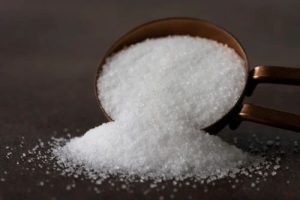SALTY MATTERS (3) By Babatunde Olugboji
In Matthew 5:13-16 Jesus addressed His disciples thus: “You are the salt of the earth. But if the salt loses its saltiness; how can it be made salty again? It is no longer good for anything, except to be thrown out and trampled underfoot. You are the light of the world. A town built on a hill cannot be hidden. Neither do people light a lamp and put it under a bowl. Instead, they put it on its stand, and it gives light to everyone in the house. In the same way, let your light shine before others, that they may see your good deeds and glorify your Father in heaven.”
This week, we will continue our examination of Jesus’ statement on a believer’s role in the society. We have already touched on some of the essential qualities of salt, including salt being connected with purity, salt as a preservative, salt as impacting whatever it comes into contact with, salt as a token of friendship in ancient societies, salt as a precious commodity, and that it salt things, including food, taste better.
In our text, after having reminded His disciples what He expected of them, He pronounced against them a heavy and dreadful judgment: if they do not fulfill their duty, if they lose their saltiness, they are good for nothing.
But how can salt lose its saltiness? Most salt in the ancient world derived from salt marshes or the like, rather than by evaporation of salt water, as it is done today, and therefore contained many impurities. The actual salt, being more soluble than the impurities, could be leached out, leaving a residue so dilute it was of little worth.
If the salt has lost his savor or saltiness, it’s no longer doing its job, meaning it becomes good for nothing. If the church is no longer a purifying influence within the community, if it seeks to exist as a social center, they are good for nothing. The church needs to be a dynamic spiritual influence within the community, striving to foster a spiritual godly influence in the community.
Salt losing its saltiness means it has become tasteless or has lost its preserving properties. The salt used nowadays is a chemical compound – chloride of sodium – and if the saltness were lost, or it were to lose its savor, there would be nothing remaining.
In eastern countries, if salt becomes impure, or mingled with vegetable or earthy substances, it will lose the whole of its saltiness, and a considerable quantity of earthy matter would remain. This was good for nothing, except that it was used to place in paths, or walks, as we use gravel today.
To be trodden underfoot – there was a species of salt in Judea, which was generated at the lake Asphaltites, and hence called bituminous salt, easily rendered vapid, and of no other use but to be spread in a part of the temple, to prevent slipping in wet weather. This was probably what our Lord alluded to.
If a believer is good for nothing, what a truly worthless state is that of the apostate believer. The savior’s estimate of him is that he is good for nothing. My prayer this week is that we will not lose our saltiness, we will remain relevant in the society.
Have a great week.
Join me live on FACEBOOK & YOUTUBE every Sunday at 7am (EST) for an insightful time of the WORD.
+1-732-554-1376 (WhatsApp)
@KingdomChat https://www.facebook.com/KingdomEdifice


